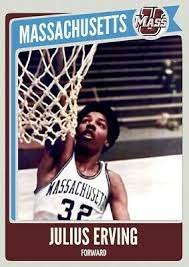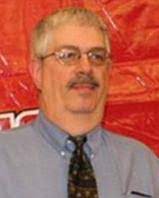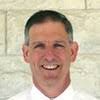Allow me to set the stage for you. The year is 1986. The Lakers are the NBA defending champs after they became the 1st visiting team to ever win a championship in the Boston Garden in the spring of 1985. They appeared ready to win back-to-back titles after starting the following season 24-3 and eventually clinching their 5th straight division title with a record of 62-20. After sweeping San Antonio in the 1st round and beating Dallas 4-2 in the Western Conference Semifinals, the only thing standing in the way of an NBA Finals rematch with Boston was a Houston team featuring a pair of Twin Towers in Hakeem Olajuwon and Ralph Sampson. Olajuwon scored a game-high 30 PTS in the decisive Game 5 but was ejected in the 4th quarter after fighting with Lakers forward Mitch Kupchak. The score was tied at 112 with 1 second left as the Rockets were inbounding from half-court. Everyone in the Forum expected the game to be headed to overtime…and then Sampson did this:
www.youtube.com/watch?v=yXOts9kaiLQ
HoopsHD’s Jon Teitel got to chat with Sampson’s college coach Terry Holland about his 3-time national POY and 1 of the most famous shots in NBA history. Today marks the 35th anniversary of Sampson’s sensational series-winner on May 21, 1986.
As a 7’3” center Sampson led his Harrisonburg High School team to a pair of Class AA state basketball titles (1978/1979) and set a McDonald’s All-American Game record with 10 BLK in a 1-PT win by the East in 1979: how crazy were all of the college recruiters back then, and how did you convince him to come to Virginia? As you can imagine the recruiters flocked to see and recruit this phenomenally gifted big man. His high school coach Roger Bergey did a great job of protecting him and allowing him to live a normal life as much as possible under the circumstances. He finally chose Virginia that June because we waited patiently while respecting the Sampsons’ privacy, and at the end his family wanted him to stay close to home so his many fans in the area could still follow his career.
He won a gold medal for team USA at the 1979 Pan Am Games in Puerto Rico: how did having a trio of Hall of Fame coaches in the huddle (head coach Bobby Knight/assistant coach Mike Krzyzewski/manager Fred Taylor) prepare him for the college game? Ralph and Isiah Thomas were 2 high school players invited to go on the trip in order to practice with the team and help prepare them for future international competitions. It was a star-studded coaching staff that included Knight’s own college coach (Taylor) and 1 of his former players (Krzyzewski) in administrative roles. Ralph lost a lot of weight on the trip so he began his first season at Virginia weighing just 188 pounds. He took a real beating during the 1st half of the season, but by the end of that year Ralph had gotten stronger and was a real force, as indicated by his performance in the 1980 NIT (particularly the championship game).
In the 1980 NIT title game he had 15 PTS/15 REB in a 3-PT win over Minnesota (becoming the 1st freshman to ever be named NIT MVP): what did it mean to him to win such an outstanding honor, and what was the reaction like when you got back to campus? Ralph’s improvement was phenomenal by this time. He dominated the semifinal game against a powerful UNLV team and then stood toe-to-toe against Minnesota’s Kevin McHale in the championship game. Shortly after the NIT championship, Boston Celtics GM Red Auerbach came to Charlottesville and Harrisonburg to visit Ralph and his family. Auerbach offered to use the 1st pick on Ralph if he would make himself available for the upcoming NBA draft. Ralph told Auerbach and others in future years that he was not leaving Virginia until he graduated with his class. He had promised his mother that he would graduate in 1983 and then go to the NBA, thus Ralph became the last 3-time national POY to graduate with his entering class.
In February 1981 Orlando Woolridge made a 15-foot fade-away jumper at the buzzer in a 1-PT win by Notre Dame to end your 28-game winning streak (www.youtube.com/watch?v=yDR0IrYN3v0): did you think the shot was going in, and do you think that we will ever see another team go undefeated for an entire season? If Kentucky could not do it in 2015 then it may never happen again. There are just so many great players on every good team today that it is unlikely.
Take me through the 1981 NCAA tourney:
Al Wood scored a semifinal-record 39 PTS (14-19 FG) in a win by eventual national runner-up UNC: how hard is it to beat a team 3 times in 1 season (you had swept the Tar Heels earlier that year)? We had a 1st round bye and found ourselves in a low-scoring game vs. Villanova in the 2nd round but hung on to win 54-50 for Virginia’s 1st-ever NCAA tourney win. In the regional semifinals we played a solid Tennessee team, won 62-48, and expected to have a rematch with Notre Dame in the Regional Finals. However, BYU eliminated the Irish thanks to Danny Ainge (www.youtube.com/watch?v=berr6EXIr7A) and we beat BYU in the regional final to advance to the Final 4. Our opponent in the NCAA semifinals was our conference rival North Carolina, who we had swept in the two regular season match-ups. However, Al Wood was unstoppable while scoring a semifinal-record 39 PTS. It is always tough to beat a team 3 times in row: Dean Smith’s North Carolina teams rarely lost anytime and rarely, if ever, lost 3 games to the same team in a single season.
Sampson had 10 PTS/11 REB in 17 minutes in a 4-PT win over LSU in the last-ever 3rd-place game (which was delayed after John Hinckley, Jr. shot President Ronald Reagan): how were you able to keep the team motivated after losing in the semifinals, and how did it feel to play a game after the assassination attempt? Both teams lobbied the Tournament Committee to cancel the 3rd-place game but the plea fell on deaf ears. It was a hard-fought game but both teams seemed to be playing “not to lose” rather than playing to win. Our 2 outstanding seniors (Jeff Lamp/Lee Raker) scored for us and Ralph was content to set them up while playing an excellent game of rebounding/defending/passing.
In December 1982 he had 12 PTS/17 REB in a 5-PT loss to NAIA school Chaminade: do you think you would have won the game had he not suffered a knee injury and pneumonia that caused him to miss the 2 previous games in Tokyo? Ralph played a great game in the “showdown” game in the Capital Centre vs. Georgetown and Patrick Ewing despite being very dehydrated from a bad case of the flu. He became even more dehydrated during the long flight to Tokyo early the next morning. Out team doctor had Ralph on IV fluids and would not let him play against Houston’s NCAA Finalist team in the 1st game in Tokyo, but we won anyway and then won our next game against a nationally-ranked Utah team before heading to Hawaii and our game with Chaminade.
He is 1 of 2 players (along with Bill Walton) to ever be a 3-time Naismith Award winner as national POY: do you feel like he is 1 of the best college basketball players ever? Ralph was on track to be recognized as 1 of the best players ever before a back injury and subsequent knee problems in his 3rd year ended his opportunity to continue a phenomenal streak that included 3-time national POY in college and 4 consecutive years as an All-Star during his 1st 4 years in the NBA, which included an MVP award in his 2nd All-Star appearance.
In December 1983 he had 28 PTS/18 REB and a career-high 13 BLK in 49 minutes in a 3-PT OT win over Chicago en route to being named ROY at the end of the season: what was his secret for blocking shots (besides being 7’4”), and how was he able to make such a smooth transition from college to the NBA? During Ralph’s freshman year in college he set a record for freshmen but was in constant foul trouble. Our coaching staff convinced Ralph that the “threat” of a blocked shot would be more effective in the long-term. Over the next 3 seasons Ralph became a terrific defender who intimidated opponents and led our teams to unparalleled success.
Take me through the magical 1986 playoffs:
In Game 5 of the Western Conference Finals he took an inbounds pass with 1 second left and made an off-balance twisting turnaround jumper at the buzzer in a 2-PT win over the defending champion Lakers (1 of the most memorable moments in playoff history): where does that rank among the most amazing shots you have ever seen? It was an incredible shot that sent the Rockets onto the Finals.
In Game 5 of the Finals he punched Jerry Sichting twice and Dennis Johnson once before getting ejected early in the 2nd quarter against a Boston team that is still considered 1 of the best ever: how did the fight start, and what kind of temper did he have? Most people who knew Ralph called him a “gentle giant”, but some teams tried to rough him up in order to make him lose his temper, even though he rarely responded to such baiting.
When people look back on his career, and how do you think he should be remembered the most? Ralph should be remembered as a truly great college player who excelled in the NBA until a series of injuries limited him to All-Star performances in only his 1st 4 professional seasons.












